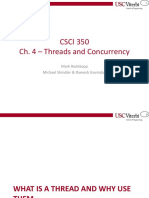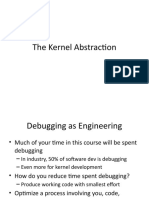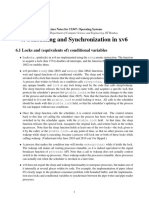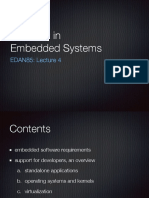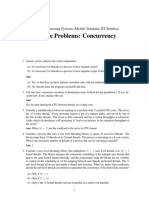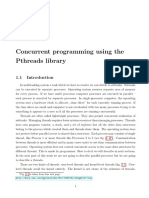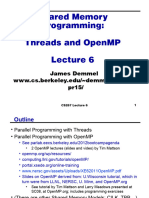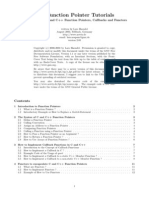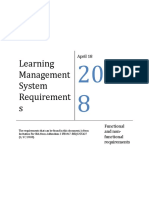0% found this document useful (0 votes)
1K views16 pagesVolatile Variable
Here are the key points about locks in OS/161:
- lock_do_i_hold() tells if the current thread holds the lock. This is useful for debugging and assertions.
- lock_get_holder() would not be very useful as a function. By the time another thread calls it and uses the return value, the lock holder may have already changed.
- The locking code needs to directly track the lock holder internally for proper lock handling. There is no need to expose this to other code via a function.
- Other threads only need to know if they hold the lock or not when trying to unlock. They don't need to know which specific thread holds it.
So in summary
Uploaded by
api-3829352Copyright
© Attribution Non-Commercial (BY-NC)
We take content rights seriously. If you suspect this is your content, claim it here.
Available Formats
Download as PDF, TXT or read online on Scribd
0% found this document useful (0 votes)
1K views16 pagesVolatile Variable
Here are the key points about locks in OS/161:
- lock_do_i_hold() tells if the current thread holds the lock. This is useful for debugging and assertions.
- lock_get_holder() would not be very useful as a function. By the time another thread calls it and uses the return value, the lock holder may have already changed.
- The locking code needs to directly track the lock holder internally for proper lock handling. There is no need to expose this to other code via a function.
- Other threads only need to know if they hold the lock or not when trying to unlock. They don't need to know which specific thread holds it.
So in summary
Uploaded by
api-3829352Copyright
© Attribution Non-Commercial (BY-NC)
We take content rights seriously. If you suspect this is your content, claim it here.
Available Formats
Download as PDF, TXT or read online on Scribd
/ 16




